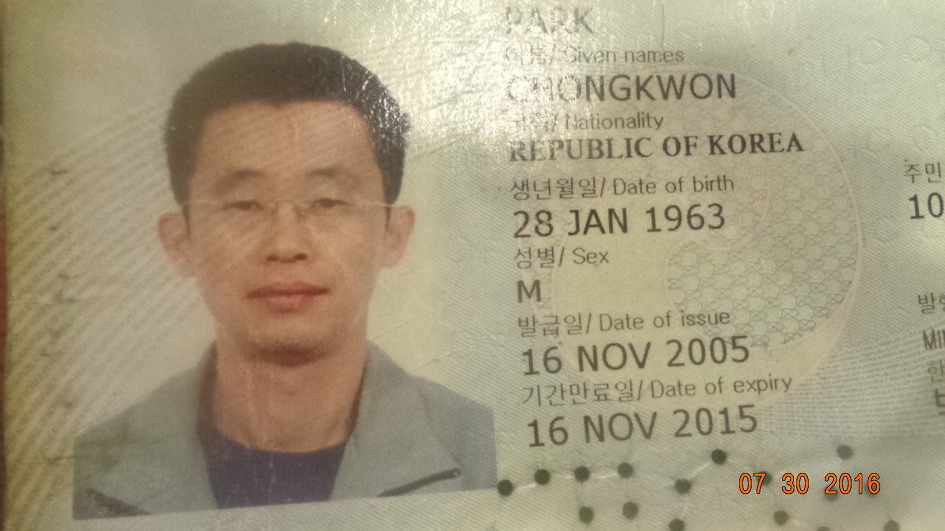In psychology, identity is the qualities, beliefs, personality, looks and/or expressions that make a person (self-identity) or group (particular social category or social group).[citation needed] Categorizing identity can be positive or destructive.[1]
In psychology, identity is the qualities, beliefs, personality, looks and/or expressions that make a person (self-identity) or group (particular social category or social group).[citation needed] Categorizing identity can be positive or destructive.[1]
A psychological identity relates to self-image (one's mental model of oneself), self-esteem, and individuality. Consequently, Weinreich gives the definition:
Sociology places some explanatory weight on the concept of role-behavior. The notion of identity negotiation may arise from the learning of social roles through personal experience. Identity negotiation is a process in which a person negotiates with society at large regarding the meaning of their identity.
Psychologists most commonly use the term "identity" to describe personal identity, or the idiosyncratic things that make a person unique. Sociologists, however, often use the term to describe social identity, or the collection of group memberships that define the individual. However, these uses are not proprietary, and each discipline may use either concept and each discipline may combine both concepts when considering a person's identity.
The description or representation of individual and group identity is a central task for psychologists, sociologists and anthropologists and those of other disciplines where "identity" needs to be mapped and defined. How should one describe the identity of another, in ways which encompass both their idiosyncratic qualities and their group memberships or identifications, both of which can shift according to circumstance? Following on from the work of Kelly, Erikson, Tajfel and others, Weinreich's Identity Structure Analysis (ISA), is "a structural representation of the individual's existential experience, in which the relationships between self and other agents are organised in relatively stable structures over time … with the emphasis on the socio-cultural milieu in which self relates to other agents and institutions" (Weinreich and Saunderson, (eds) 2003, p1). Using constructs drawn from the salient discourses of the individual, the group and cultural norms, the practical operationalisation of ISA provides a methodology that maps how these are used by the individual, applied across time and milieus by the "situated self" to appraise self and other agents and institutions (for example, resulting in the individual's evaluation of self and significant others and institutions).[citation
A psychological identity relates to self-image (one's mental model of oneself), self-esteem, and individuality. Consequently, Weinreich gives the definition:
"A person's identity is defined as the totality of one's self-construal, in which how one construes oneself in the present expresses the continuity between how one construes oneself as one was in the past and how one construes oneself as one aspires to be in the future"; this allows for definitions of aspects of identity, such as: "One's ethnic identity is defined as that part of the totality of one's self-construal made up of those dimensions that express the continuity between one's construal of past ancestry and one's future aspirations in relation to ethnicity". [2][page needed]Gender identity forms an important part of identity in psychology, as it dictates to a significant[quantify] degree how one views oneself both as a person and in relation to other people, ideas and nature. Other aspects of identity, such as racial, religious, ethnic, occupational… etc. may also be more or less significant – or significant in some situations but not in others (Weinreich & Saunderson 2003 pp 26–34). In cognitive psychology, the term "identity" refers to the capacity for self-reflection and the awareness of self (Leary & Tangney 2003, p. 3).
Sociology places some explanatory weight on the concept of role-behavior. The notion of identity negotiation may arise from the learning of social roles through personal experience. Identity negotiation is a process in which a person negotiates with society at large regarding the meaning of their identity.
Psychologists most commonly use the term "identity" to describe personal identity, or the idiosyncratic things that make a person unique. Sociologists, however, often use the term to describe social identity, or the collection of group memberships that define the individual. However, these uses are not proprietary, and each discipline may use either concept and each discipline may combine both concepts when considering a person's identity.
The description or representation of individual and group identity is a central task for psychologists, sociologists and anthropologists and those of other disciplines where "identity" needs to be mapped and defined. How should one describe the identity of another, in ways which encompass both their idiosyncratic qualities and their group memberships or identifications, both of which can shift according to circumstance? Following on from the work of Kelly, Erikson, Tajfel and others, Weinreich's Identity Structure Analysis (ISA), is "a structural representation of the individual's existential experience, in which the relationships between self and other agents are organised in relatively stable structures over time … with the emphasis on the socio-cultural milieu in which self relates to other agents and institutions" (Weinreich and Saunderson, (eds) 2003, p1). Using constructs drawn from the salient discourses of the individual, the group and cultural norms, the practical operationalisation of ISA provides a methodology that maps how these are used by the individual, applied across time and milieus by the "situated self" to appraise self and other agents and institutions (for example, resulting in the individual's evaluation of self and significant others and institutions).[citation



댓글
댓글 쓰기